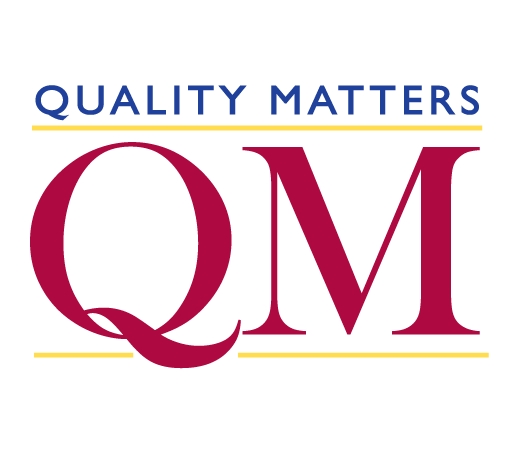
A QM course review provides feedback that is particularly helpful in resolving issues unrelated to the course content or delivery. Some examples include:
The QM approach helps because it is based on best practices for course design. These practices promote navigability, alignment, and accessibility of the course, with the goal of creating an optimal online learning environment. In a course that meets QM design standards, learners can easily get started and access the materials and information they need. The purpose and organization of the course is clear. Learners understand what will be required of them, and how to obtain assistance when it is needed. Critical components of the course--including instructional materials, learning activities, learner interactions, course tools and technology, and assessments--all work together to enable learners to meet the learning outcomes. The course is accessible to and usable by all learners.
The QM Rubric may be consulted during the initial course design process, or used to guide the revision of an existing course, long before a review is conducted. Training is available for instructors and instructional designers who are interested in using QM standards during course design or revision, or even applying the QM Rubric in an informal self-review of their courses.
A QM review, using a peer review team, is conducted on "mature" courses that have been taught for at least two semesters. Reviews may be internal, using a team of peer reviewers affiliated with the institution. If internal reviews adhere to QM standards, the institution may share the accomplishment on their web pages and via social media. At this time, NKU has QM-trained reviewers for courses in Business Administration & Management; Computer & Information Systems; Economics; Education; Health & Medical Sciences; History; Languages & Literature; Library & Archival Sciences; Mathematical Sciences; Philosophy; Political Science; Public Administration; Social Sciences; Sociology; Psychology & Behavioral Science; and Religion & Theology. If you are interested in having your mature online or hybrid/blended course in one of these areas reviewed, please email Stephanie Songer to discuss how to prepare the course and initiate the review process.
Most institutions use mainly internal reviews, and select a few courses for official review each year as a benchmark. A QM-managed official course review requires at least one external peer reviewer on the review team, and is overseen and verified by QM staff. Meeting standards on an official review enables the institution to advertise the course using a QM Certification Mark.
The benefits of adopting QM do not stop at the individual course level. The reports generated by an internal review include QM Rubric scores and reviewer feedback. These reports are added to the institution's QM data. QM institutional data can serve as evidence of online course quality for accreditation and/or program reviews.
If a fully-online program demonstrates excellence in program design, teaching support, learner support, and/or learner success, it can earn QM Program Certification. Programs that earn certification in all four areas are eligible for Exemplary Program status. The ultimate QM achievement is for all fully online programs at an institution to earn Exemplary Program Status. Institutions with Program Certification receive a seal for display on their website and printed materials, and are featured on the QM website. Such recognition differentiates institutions with Program Certification from their many competitors in the arena of online education.
